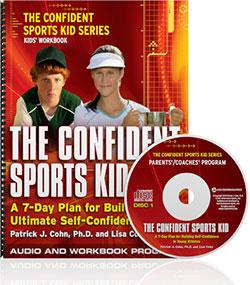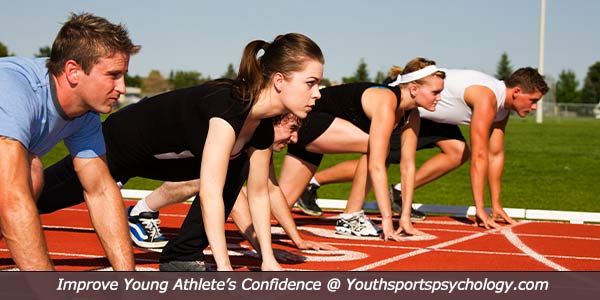If Young Athletes Work Together, They Will Grow Together
V.J. Stanley, a coach, former teacher and author of three youth sports books, believes that building community is the most important goal for coaches and parents who want to boost their kids’ confidence and happiness in sports.
Equal play for kids age 10 and under is one important way to build this community, he says.
“We want to teach the idea of community, and using community to lift the group,” he says. When young kids’ sports teams focus on equal play, the kids help each other out. “The group in itself starts to lift up.” More experienced or talented players help out and teach the kids who are younger and less experienced. This lays a foundation of confidence in younger kids.
Along with building community, coaches and parents should help kids understand the role of negative thinking in youth sports. Negative thinking, he says, is a natural product of how we think. In his latest book, “Does Your Mind Mind What You’re Doing to Your Body?” he explains it’s quicker for the brain to choose negativity over positivity.
Community Building
“The mind is predisposed to negative thoughts,” he says. “The negative response is shorter in the brain. It’s the path of least resistance.” That means that parents, coaches and sports kids need to switch their priorities. They need to understand how the mind works and stop focusing on negative thoughts. They should think–and give feedback– in a more positive fashion.
Achieving “peace of mind” is also critical, he says. Building community helps create that peace of mind. “We want the kids to work together, make that their priority.” One way to do that is through equal play, which helps kids learn and engage. It also helps kids play intuitively, rather than worrying about competing with their teammates for playing time.
“Ask any great athlete, listen to what they say after they make a great play. They say, “I don’t know how I did it, I couldn’t hear the crowd, don’t know what the coach said.’” Having peace of mind blocks out noise and stress. It allows kids to make snap decisions, and play intuitively, which is an ideal way to play.
Listen to the Ultimate Sports Parent Podcast
Related Kids Sports Psychology Articles:
- Create a Sports Culture that Includes All Kids
- Athletes Who Lack Confidence and Mental Game
- How Proper Gear Boosts Confidence When Coming Back From An Injury
*Subscribe to The Sports Psychology Podcast on iTunes
*Subscribe to The Sports Psychology Podcast on Spotify
The Confident Sports Kid

When kids lack confidence, they doubt themselves, stop taking risks, play tentatively, and are hard on themselves. As a result, kids often lose their motivation to improve. Ultimately, these barriers keep them from enjoying sports and making the most of their physical talent.
“The Confident Sports Kid” program is actually two programs: one that teaches sports parents how to boost their kids’ confidence, and another that teaches young athletes age 8 to 18 how to improve their self talk, avoid negative thinking, overcome expectations that limit confidence, and much more. The program will help kids boost their confidence in sports and life…and enjoy sports more.

